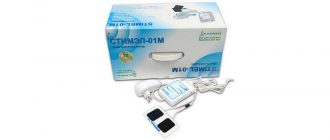Hormone therapy for prostate cancer is used to reduce the formation of testosterone in the body, which contributes to the appearance and growth of the oncological process. This slows down tumor growth. The use of hormonal agents also enhances the effect of radiation and chemotherapy. The combined use of several methods relieves symptoms, reduces the risk of disease relapse and prolongs life.
The influence of hormones on a malignant tumor
It is generally accepted that the formation of a malignant tumor is directly related to an increased level of male sex hormone (however, the mechanism of the oncological process is not fully understood).
Hormonal treatment for prostate cancer is not prescribed to all patients. The use of medications does not bring results in the case of a hormone-resistant type of disease.
Hormone therapy for prostate cancer involves the administration of medications that regulate the amount of hormone produced. There are several types of medications used:
- Agonists and antagonists of LHRH (luteinizing hormone releasing hormone). Medicines block the production of luteinizing hormone in the pituitary gland, which is responsible for the functioning of Leydig cells. With its deficiency, the level of testosterone produced decreases.
- Antiandrogen medications block the production of male hormone in the adrenal glands. Application as the only type of therapy is used only in the absence of metastases. In other cases, it is recommended to use it in combination with other methods.
In what cases is it used?
There are two types of disease:
- Hormone-dependent prostate cancer – its development is influenced by the level of sex hormones. When treating this type, the use of hormonal therapy is recommended.
- Hormone-resistant – tumor growth is observed even with low levels of sex hormones. In this case, the use of medications does not bring results. Life expectancy for hormone-resistant prostate cancer, due to the fact that it is not amenable to drug therapy, is 2-5 years.
Hormonal therapy is indicated before and after surgery to remove a malignant prostate tumor. Before surgery, this is necessary to stop the growth and reduce the volume of the gland. Taking medications after surgery allows for faster recovery and prolongs life.
After radiation or chemotherapy, it is necessary to reduce the likelihood of disease relapse. For this purpose, adjuvant hormone therapy for prostate cancer is used. This method involves the introduction of special antitumor agents in an intermittent manner.
In case of systemic recurrence of prostate cancer, early hormonal therapy should be performed. It allows you to slow down tumor growth and increase your chances of prolonging life.
Types of hormone therapy
This method of therapy has several classification characteristics. It can be divided by course duration and types:
- combined – several medications are used;
- delayed – prescribed after long-term observation of tumor growth;
- intermittent – administration of medications over a short period of time.
According to the method of implementation, the following are distinguished:
- medical castration (taking LHRH agonists and antagonists, antiandrogens);
- replacement of testosterone with estrogen;
- surgical castration (orchiectomy);
- androgen blockade.
Which method of treatment and duration of the course the doctor will choose depends on the clinical picture of the disease.
LHRH agonists
The drug is available in the form of injections, which are administered subcutaneously or intramuscularly once a month.
The drugs have the property of blocking the production of luteotropin produced in the anterior pituitary gland. This hormone stimulates the production of testosterone.
When administered, hormonal injections cause a gradual decrease in luteotropic hormone, and, as a result, a decrease in testosterone levels. After 4 weeks, the level decreases to the castration minimum. To reduce the level of male sex hormone in the first month, it is permissible to use antiandrogens.
The medication must be administered once every 30 days. To reduce side effects, intermittent dosing is used: after several months of use, a break is taken, then treatment is resumed. Subcutaneous implants are also used, which release the drug gradually over a long period of time. LHRH-based drugs include:
- Buserelin.
- Goserelin.
- Leuprorelin.
- Triptorelin.
LHRH antagonists
These drugs are prescribed for the primary treatment of cancer that has already metastasized. When they are used, there is no surge in testosterone, but an immediate decrease in hormone levels and a decrease in symptoms of the disease.
Among the antagonist drugs, there is only one approved in Russia - Firmagon. The active ingredient is degarelix. Injected subcutaneously in the abdominal area.
Abarelix was recently approved in the United States. Its use is permitted in case of metastasis formation and the impossibility of treatment with other methods.
Antiandrogens
Antiandrogen drugs for men with prostate cancer are divided into two groups:
- steroid;
- non-steroidal.
Steroid drugs not only block the production of testosterone by the adrenal glands, but also do not suppress the production of LHRH by the pituitary gland.
Non-steroidal drugs block androgen receptors and do not reduce testosterone production in prostate cancer.
Antiandrogen drugs can be divided according to the active substance:
- Flutamide (Andraxan, Aprocan, Flucinom).
- Bicalutamide (Casodex, Calumid, Bicana).
- Nilutamide (Anandrone).
Estrogens
Estrogen therapy for prostate cancer allows you to suppress the effect of the male sex hormone on the body. It has great effectiveness, but also a considerable number of side effects.
To reduce the production of androgens in prostate cancer, female sex hormones are used: progesterone and estradiol. During use, there is a risk of cardiovascular disease and heart attack.
To reduce the likelihood of these side effects, the dosage of the drug is reduced, but in this case, after 6 months there is an increase in testosterone levels.
Drugs in this group include:
- Diethylstilbestrol.
- Phosfestrol.
Orchiectomy
The purpose of this operation is to remove the testicles, which produce the maximum amount of androgens. It allows you to stop the production of androgens, which contribute to tumor growth, in a short time.
The operation is performed under general or local anesthesia and is not difficult.
After anesthesia is administered, an incision is made in the scrotum and the testicles and spermatic cords are removed. If there are metastases, lymph nodes and parts of the affected organs are removed.
Surgical intervention is a radical method. If sexual function is preserved during medical castration, then after orchiectomy this function is not restored.
Combined androgen blocking
With combined androgen blockade, several drugs are used that act on the brain and adrenal glands:
- LHRH agonists or antagonists.
- Antiandrogens.
With this treatment, not only the formation of androgen is suppressed, but also its action in the prostate gland.
The disadvantage of the method is the presence of multiple side effects.
Side effects and consequences
The use of hormonal drugs has a negative effect on the body as a whole. Known side effects of hormone therapy are:
- nausea;
- diarrhea;
- osteoporosis;
- decreased libido;
- impotence;
- weight gain;
- enlargement of the mammary glands;
- bone pain;
- anemia.
Chest pain in the treatment of prostate cancer with hormones is explained by disruptions in the cardiovascular system. There is a high risk of heart attacks and strokes.
To reduce side effects, it is recommended to follow some rules:
- Take dietary supplements and vitamins.
- Avoid fatty, fried and smoked foods.
- Quit smoking.
- Add plant foods to your diet.
- Exercise.
When you stop taking hormonal medications, the side effects go away. Only the consequences of surgical castration remain irreversible.



